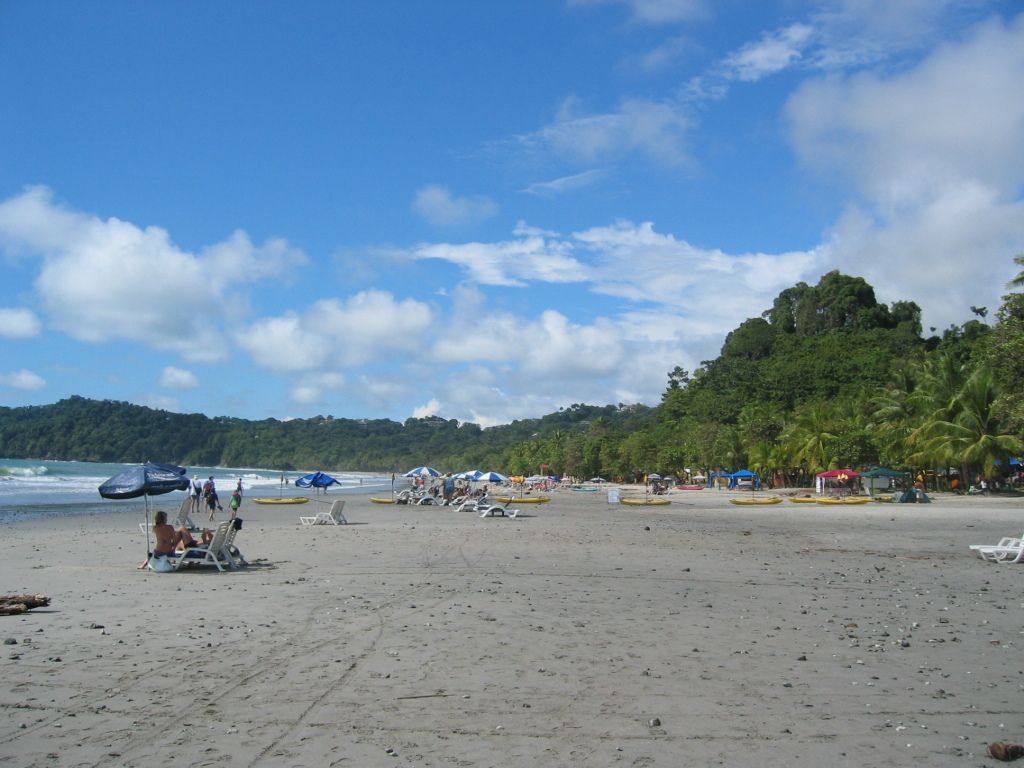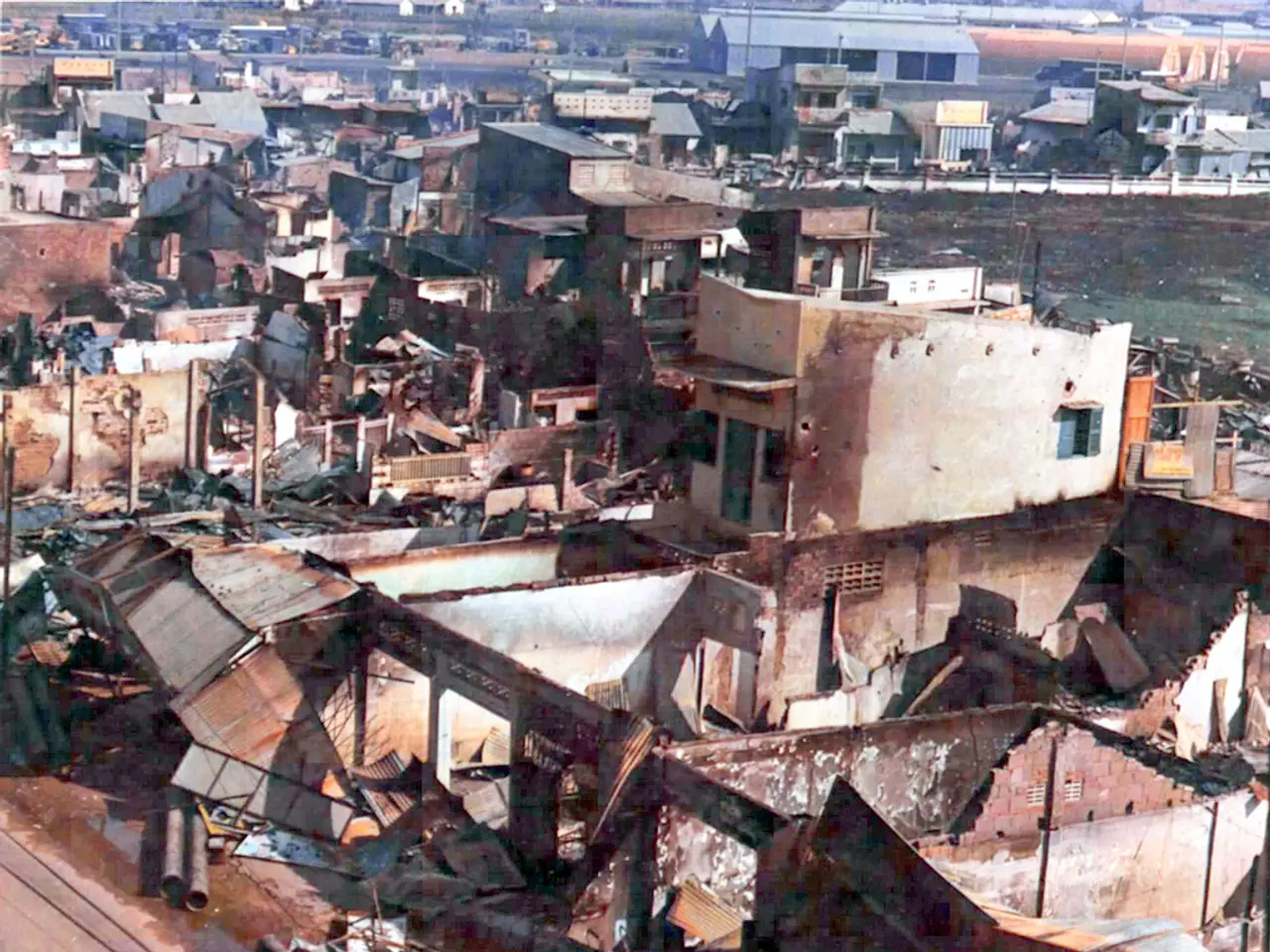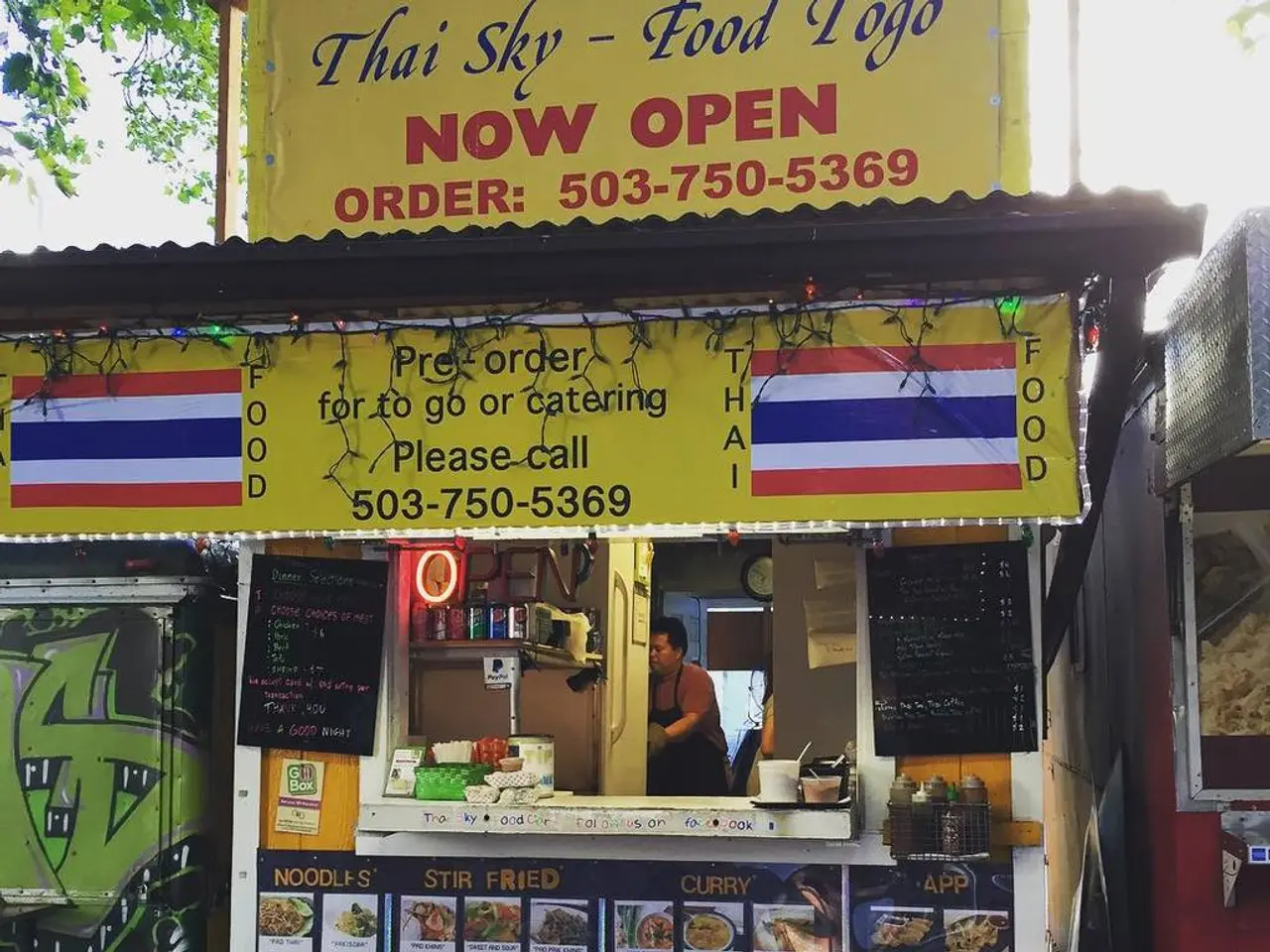Middle East: A Stable, Untapped Export Market for Vietnamese Businesses Amid Global Trade Uncertainties
Businesses affiliated with our web platform are considering expansion into the Middle Eastern market.
Struggling with US tariff risks and the EU's Carbon Border Adjustment Mechanism, many Vietnamese businesses are turning to the Middle East as a promising, unexplored market.
Untapped Potential
As the US escalates its trade defence investigations and the EU tightens carbon regulations, companies like Secoin, a leading manufacturer of decorative products, are diversifying their export destinations. The Middle East, with its strong demand for high-end, personalized products, has emerged as a lucrative market for Secoin.
With the US once accounting for over half of Secoin's export revenue, it's no longer a top priority. The company is reconstructing its business model to spread risks and avoid putting all its eggs in one basket. The Comprehensive Economic Partnership Agreement (CEPA) between Vietnam and the United Arab Emirates (UAE), signed in October 2024, is expected to further fuel trade and investment opportunities in the region.
Other businesses, such as Dony Garment Company, are also making a mark in the Middle East. Despite not having formal trade incentives, Dony has managed an annual export growth rate of 15-20% to the region.
Patience and Good Preparations Needed
Accessing the Middle Eastern market can be challenging, especially in meeting Halal requirements, which cover everything from raw materials to packaging and logistics. Companies like Global Trading Link, a coffee exporter, have faced high costs, up to 20-30%, to upgrade facilities and retrain staff. Dony Garment Company's Director, Phạm Quang Anh, highlighted the Red Sea crisis' impact, where shipments were delayed for up to four months, with costs escalating four to five times.
To establish a solid footing in the market, more proactive market promotion and government support are required. While not overly demanding, the Middle East market requires a deep understanding of local customs and full compliance with Halal standards throughout the production process.
A factory of the Việt Đức Steel JSC in Vĩnh Phúc Province. - VNA/VNS Photo
With the right planning, strategic investments, and government backing, the Middle East promises long-term growth opportunities for Vietnamese exports.
Note: The Middle East market shows unique requirements firmly rooted in culture and religion, like compliance with Halal standards. To conquer this market, a thorough understanding of local customs and complete adherence to these standards are crucial. Companies should also focus on market research and development, strategic partnerships, and logistical resilience to address geopolitical challenges.
- Amidst trade uncertainties with the US and the EU, many Vietnamese businesses are finding the Middle East as a viable, untapped market, such as Secoin, a leading manufacturer of decorative products, which has discovered this region's strong demand for high-end, personalized products.
- Businesses like Dony Garment Company are also making inroads in the Middle East, with annual export growth rates of 15-20%, despite lacking formal trade incentives.
- Companies entering the Middle Eastern market must navigate challenges like meeting Halal requirements, with costs up to 30% to upgrade facilities and retrain staff, as shown by Global Trading Link, a coffee exporter.
- To establish a strong presence in the Middle East, proactive market promotion, government support, understanding local customs, full compliance with Halal standards, and strategic planning are all essential.
- With the right preparation, strategic investments, and government backing, the Middle East offers significant, long-term growth opportunities for Vietnamese exports, requiring a focus on market research, development, strategic partnerships, and logistical resilience to address geopolitical challenges.




